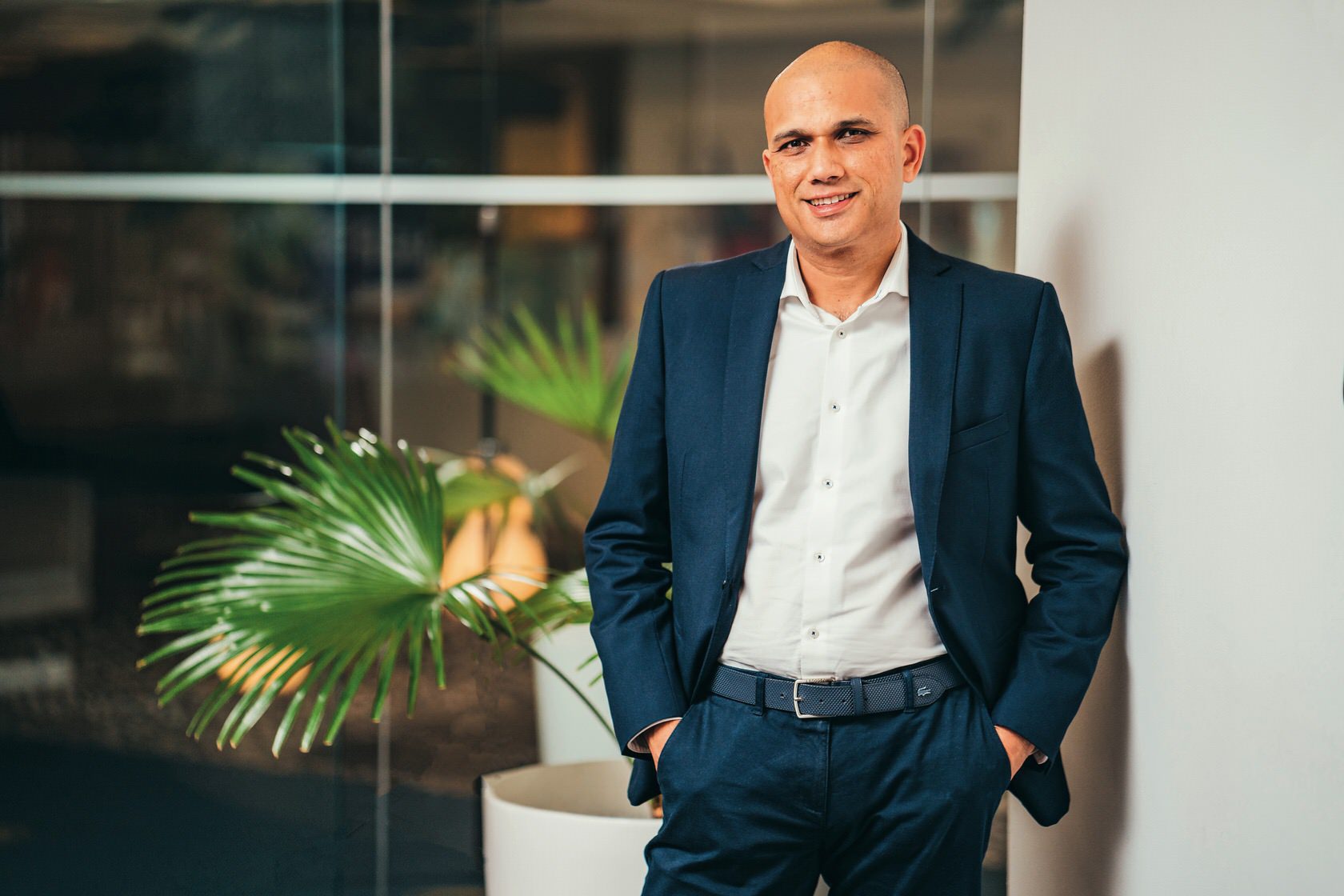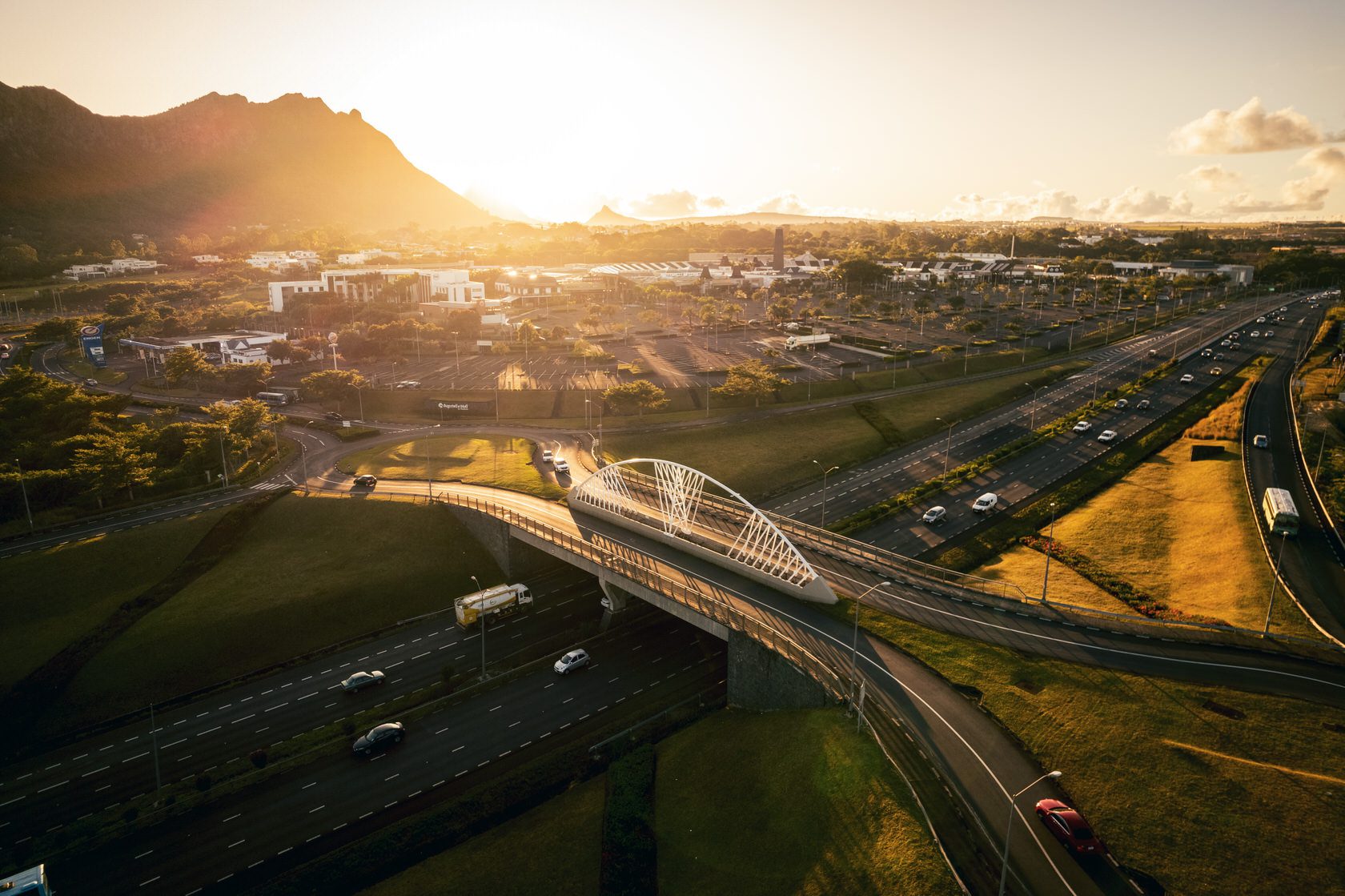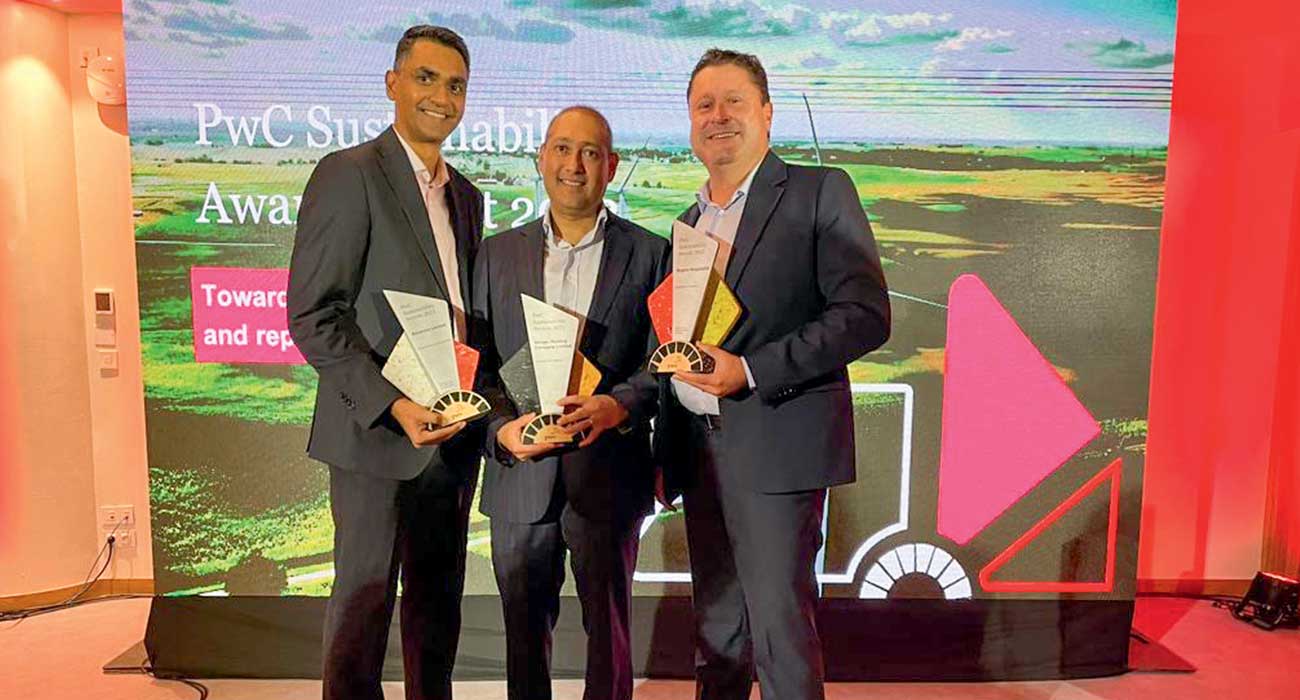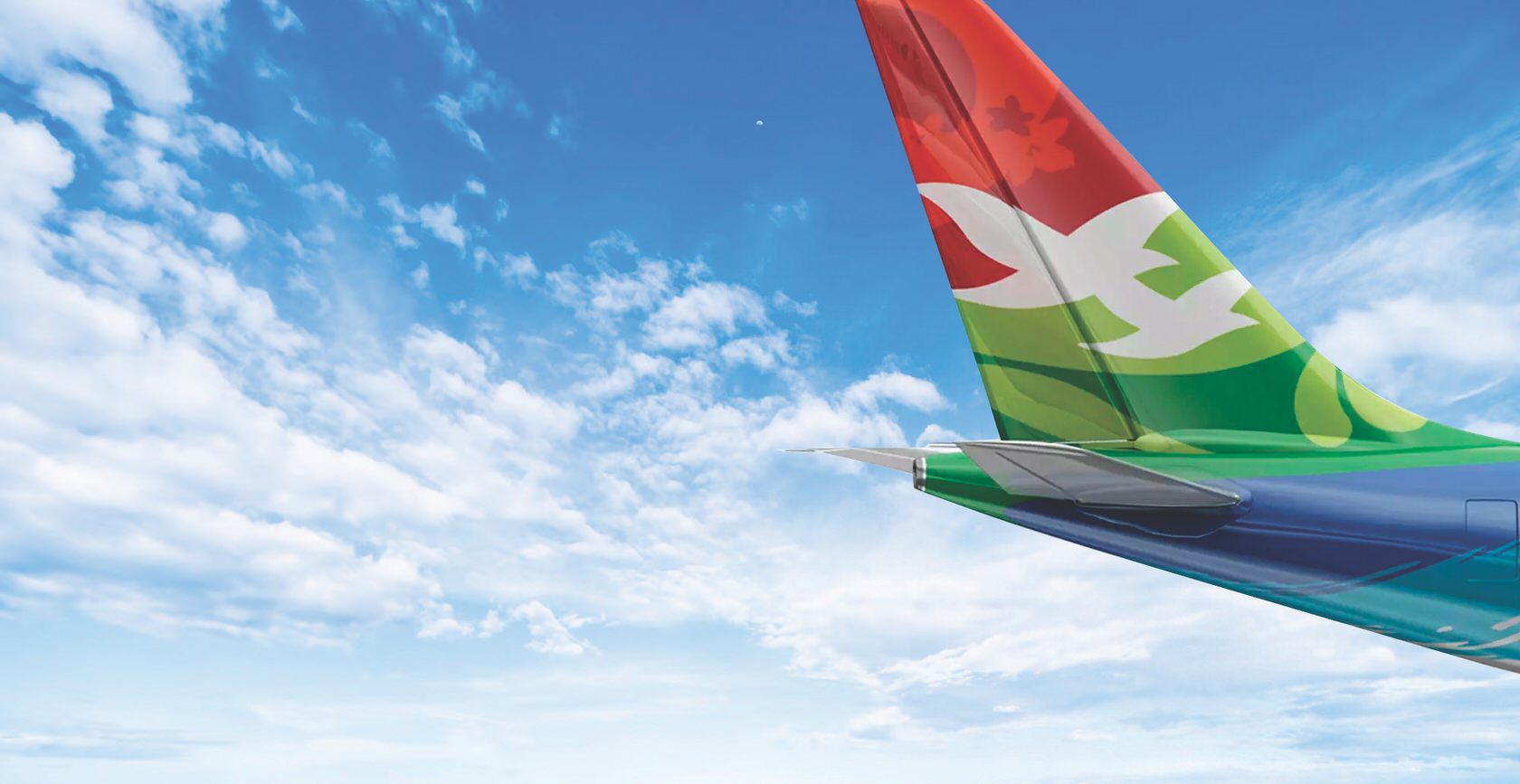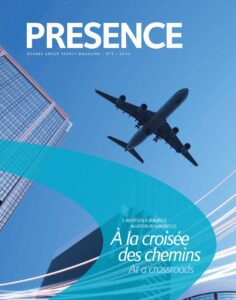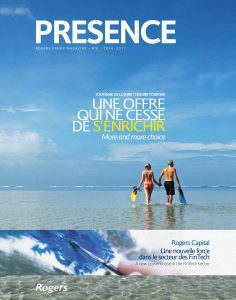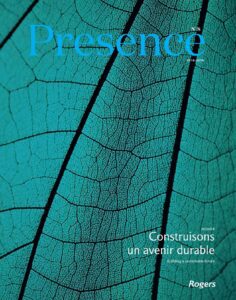"Rethinking our environmental impact"
According to Air France’s Chief Executive Officer, Anne Rigail, the sanitary crisis, combined with climate change issues, has highlighted the need to tackle one major challenge of our time: the transition towards greener tourism and aviation industries.
Tourism and aviation industries were both heavily impacted by the sanitary crisis. Two years later, the travel and tourism sector is experiencing significant growth again. Does revenge travel come into play?
The aviation industry suffered a real shock and went through the worst crisis in its history due to the Covid-19 pandemic. The impact of this crisis was unprecedented. In March 2020, at the peak of the pandemic, Air France was operating at only 5% of its normal capacity, that is, 60 flights daily instead of 1,200. During the summer of 2022, air traffic almost reached its pre-Covid capacity levels. And the trend is being confirmed. During the 2022-2023 winter season (i.e. November 2022 to March 2023), the airline will serve 171 destinations, among which 86 long-haul flights and 85 medium and short-haul flights. The company’s entire fleet will be in operation and capacity throughout the network will be close to the 2019 winter level.
All major crises have led to significant changes in the air transport sector. What could be the long-term consequences of the ongoing ones (climate change, Covid-19 and the Russo-Ukrainian conflict)?
The sanitary crisis, as well as climate change issues, have led our sector to accelerate its transition to more responsible and greener air transport. At the beginning of 2022, Air France launched the Air France ACT programme, bringing together all its environmental commitments. Our objective is to cut our CO2 emissions per passenger-kilometre by 30% by 2030, which is equivalent to a 12% reduction of our net emissions, compared to 2019. To do so, we are leveraging four pillars: fleet renewal, eco-piloting, promotion of Sustainable Aviation Fuels (SAFs) and a combination of different modes of transportation (intermodality). We are fully dedicated to this transition, and the announcement of two long-term contracts with two SAFs suppliers demonstrates our commitment.
In your view, what will be the main challenge for long-haul destinations for the next decade?
For the next ten years, the main challenge will most likely be the environmental one and how long-haul destinations will mitigate climate issues. Air France is particularly mindful of its clients’ consumption habits, and regularly updates its offer accordingly. We have thus noticed that clients want to travel less often but for longer. Therefore, Air France seeks to offer products at the best rates, with higher comfort standards as well as enhanced energy efficiency (with more modern and energy-efficient planes, etc.).
What did you mean when you said: "The air transport industry needs climate change pioneers"?
The air transport sector needs stakeholders who will give an impetus to its decarbonisation process. This is why Air France is committed to following a path towards a more sustainable industry. For instance, the airline supports the emergence of a SAF production value chain in France. In 2020, we worked alongside Airbus, Safran, Suez and Total to that end. And the following year, Air France operated its first long-haul flight with SAF produced in France. On 25 October 2022, Air France-KLM Group reached a new milestone by signing two long-term contracts for SAF supply for 2023-2030. Combined, these contracts represent 3% of the 10% SAF the airline aims to incorporate on all its flights by 2030.
Many people see air transport as one of the world’s most polluting industries. Is this perception justified, and could it impact our consumption habits?
The air transport sector needs stakeholders who will give an impetus to its decarbonisation process. This is why Air France is committed to following a path towards a more sustainable industry. For instance, the airline supports the emergence of a SAF production value chain in France. In 2020, we worked alongside Airbus, Safran, Suez and Total to that end. And the following year, Air France operated its first long-haul flight with SAF produced in France. On 25 October 2022, Air France-KLM Group reached a new milestone by signing two long-term contracts for SAF supply for 2023-2030. Combined, these contracts represent 3% of the 10% SAF the airline aims to incorporate on all its flights by 2030.
Are carbon-free long-haul flights a pipe dream?
It is important to point out that there is no such thing as “carbon-neutral flights”, and we do acknowledge that on the website of Air France ACT. That said, we are implementing measures to significantly reduce carbon emissions on our flights. Firstly, we have started our fleet renewal, contributing in the use of latest-generation and more energy-efficient aircraft. In addition, we are implementing eco-piloting techniques with a view to using less resources. Finally, the use of SAFs will be our second key lever, which is more effective to cut CO2 emissions, though it is a medium-term action. To this end, the signing of these two long-term contracts by Air France-KLM Group is a real breakthrough.
In the United States, airlines using biofuels are entitled to tax credits. Are you in favour of the introduction of such regulations at global level?
The carbon neutrality objective will only be achieved by 2050 if all public and private stakeholders are collectively committed to successfully managing the transition. This support could indeed take the form of incentive schemes, such as those currently in force in the State of California. In France today, public initiatives aim at developing or improving production methods that are not yet mature. This is reflected in the support given to research and development (R&D) or to demonstrators through a call for expression of interest. These national measures are essential, but they will have to be complemented by global regulations to avoid competition when production will reach sufficient levels.
Will technology enable long-haul flights to be operated without fossil fuels?
The use of SAFs is one of the most efficient technological advancements to prevent the use of fossil fuels in the medium term. There are two kinds of SAFs: one which is produced from used cooking oil, for instance, and the other one, e-fuels, which is not yet produced on a large scale. Since a substantial volume of SAFs is required to decarbonise the aviation industry, it is important to fully use the resources available. The production of this fuel should be sustainable and meet all criteria set by international certification systems, such as the International Sustainability and Carbon Certification (ISCC) and the Roundtable on Sustainable Biomaterials (RSB).
Is eco-piloting a gimmick or an effective tool?
Pilots nowadays play a significant role in containing CO2 emissions during a flight. For an airplane to be lighter, and therefore less fuel-intensive, a pilot can optimise the loaded weight. While putting security first, he may also use only one engine for taxiing on the runway. For take-off, a pilot can optimise several parameters so as not to use the engines at full capacity. During the flight, he will constantly ensure his trajectory is as effective as possible by communicating with air traffic control in order to identify the best altitude and the shortest route. When approaching a destination, and when it is safe to do so, the crew will perform a smooth and constant descent with an idling engine. These actions, referred to as “eco-piloting”, are already implemented by our pilots. Their implementation enables the company to reduce its fuel consumption by 3 to 4% yearly, and therefore its CO2 emissions as well.
It is rare to have two companies partnering for 77 years. Where does the strength of this collaboration lie?
Air France is delighted to work with Rogers, especially when it comes to its projects in Mauritius. Moreover, our teams are happy to collaborate and they work very well together, whether it comes to handling, distribution or marketing activities. We are now tackling the major challenges regarding climate change with a view to finding a more collective and integrated response.
How do you envision the future of this partnership?
Concerns expressed by the tourism sector and the aviation industry regarding climate change issues are increasingly concomitant, and we need to rethink our environmental impact in order to continue our activities. The future of these sectors in Mauritius is at stake. As part of this partnership, Air France and Rogers have to take these concerns into account to define a course of action for the future. This collaboration needs to enable us to explore short and long-term promising solutions, whether for Mauritius or for the tourism industry in general.


